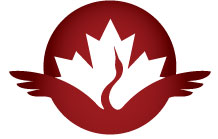[Following up on our food aid and food security theme, we would like to alert our readers to papers published by our partner-site 38North. Two articles in particular have drawn our attention. The first is a further analysis of the recent decision by the European Union to send food aid to the DPRK. It is written by Glyn Ford, a man who knows the EU intimately, having been a Member of the European Parliament for over 25 years, until the June 2009 elections. The second article is by Roberta Cohen, whom CanKor readers have met before. She is a Non-Resident Senior Fellow at the Brookings Institution specializing in human rights and humanitarian issues, and a member of the Board of Directors of the Committee for Human Rights in North Korea. Cohen argues in her article that the time has come for the Obama administration to stop dawdling and come to a positive decision regarding food aid. Please follow our links to the articles on the 38North site. –CanKor.]
 Feeding the Famine: The European Union’s Response to North Korea by Glyn Ford
Feeding the Famine: The European Union’s Response to North Korea by Glyn Ford
The European Union (EU) announced on July 4, 2011 that it would provide €10 million ($14.3 M) of emergency food aid to North Korea to be distributed through the World Food Programme (WFP) over the next three months–until the end of September, just prior to the arrival of this year’s harvest. This aid represents a much delayed response to an initial request for humanitarian assistance sent by Foreign Minister Pak Ui Chun on January 24… Over the last decade, the EU has provided roughly €500 M ($715 M) in aid, including humanitarian assistance, and nutritional, sanitation, and development projects, plus an earlier contribution to the Korean Energy Development Organisation (KEDO)… Read more…
Hunger in North Korea: Time for a Decision by Roberta Cohen
…But taking no decision is really a decision, which gives the impression that there may be no urgent or extensive food crisis in North Korea requiring immediate action. It set aside the findings of thirteen reputable relief groups and did not dispatch its own mission until the end of May. The mission visited only two provinces (the United Nations visited nine) and has been studying its findings for more than a month. Washington also has been developing stringent monitoring standards should it resume aid, given North Korea’s known diversions to the army and elite. But these may possibly be so restrictive as to preempt agreement… Read more…







